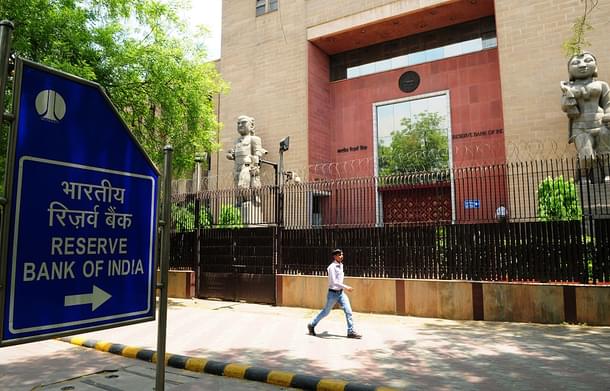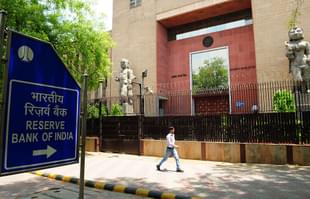Business
Swadeshi Lobby Is Right To Oppose RBI’s Promoter Holding Limits In Banks
R Jagannathan
Dec 07, 2018, 12:14 PM | Updated 12:14 PM IST
Save & read from anywhere!
Bookmark stories for easy access on any device or the Swarajya app.


The Swadeshi lobby usually tends to get bad press in the pink media. It is seen as pursuing wonky economic ideas and as being protectionist in its mindset.
However, the Centre for Economic Policy Research (CEPR), an institution with ties to the Swadeshi Jagran Manch, has surely got it right when it recently opposed the Reserve Bank of India’s diktat on bringing promoter holdings in banks steadily down to 15 per cent – a limit that will immediately impact banks like Kotak Mahindra, where the promoters hold around 30 per cent. On Friday (7 December), markets were abuzz with the rumour that Warren Buffett’s Berkshire Hathaway may pick up a 10 per cent stake in Kotak.
As an investor, Berkshire Hathaway tends to back good companies with a track record of steady earning growth, and hence it does not destabilise existing managements. As a long-term investor, Berkshire is usually a good partner to have on the board.
That said, the real issue is that the 15 per cent cap is too low for bank promoters. A couple of months ago, when Bandhan Bank failed to bring down its planned promoter holdings as dictated by the RBI, it faced curbs on growth. The central bank restricted Bandhan’s branch expansion and froze its founder’s salary for failing to bring down promoter holdings to 40 per cent as per the prescribed deadline. It is currently at twice the level.
As for Kotak, he has to bring down his holdings in the bank to 20 per cent by the end of this month. This could be why Berkshire Hathaway is being talked about, though the news was far from confirmed at the time of writing. A 10 per cent stake sale, either by way of Uday Kotak selling his stake, or by raising additional equity through a preferential issue to Buffett, will bring in around Rs 23,000-25,000 crore, either to the promoter or to the bank. Better the bank than the promoter, for it will strengthen its capital position.
It is foolish to restrict promoter holdings by fiat merely because the central bank fears that promoters could end up lending to favoured parties, or even related businesses, when the reality is that even publicly owned banks have been lending to rogue elements at the behest of politicians or other powerful people.
The short point is that if a banker wants to go rogue, it is not necessarily because he holds a lot of the shares, but because he is willing to risk regulatory and penal action for making dubious lending deals.
Under current guidelines, as noted earlier in a Swarajya article, individuals and non-financial corporations can own only up to 10 per cent in a bank, while unlisted, non-regulated, non-diversified financial institutions can own up to 15 per cent; listed, widely diversified financial institutions and public sector undertakings and government can own up to 40 per cent (or more) in banks. Plus, exceptions may be allowed on a case-by-case basis.
The RBI’s unstated logic in placing arbitrary limits on promoter holdings is that since promoter actions are difficult to police, their shareholding power should be as low as possible. But this is doubtful logic: if a promoter is not going to follow governance guidelines when he holds 40 per cent in a bank, and thus has a reputation to lose, why would he think 15 per cent is any barrier to criminal thinking?
Promoter transgressions may be tough to police, but the remedies are more independent boards and closer supervision, not to speak of tougher penalties if someone is caught in the act. The RBI’s lack of policing capability cannot be converted into a penalty on promoter holdings, especially if a promoter believes he brings value to the bank he is running.
And, coming back to the CEPR’s demand, it makes sense. There is also the additional merit in allowing Indian promoters to retain higher stakes in good banks, thus retaining dividends and market value back home. Banks like HDFC Bank and ICICI Bank are majority owned by foreign shareholders, and they could be takeover targets if only the government were to change its ownership policies. Allowing promoters to retain higher stakes will provide them with an added measure of defence against predators.
Jagannathan is former Editorial Director, Swarajya. He tweets at @TheJaggi.





